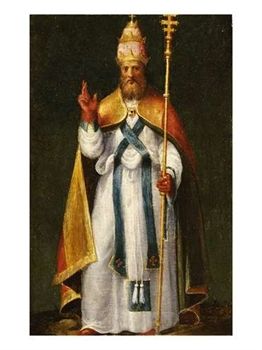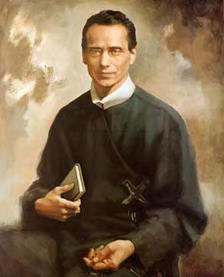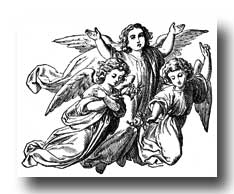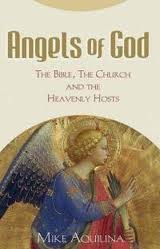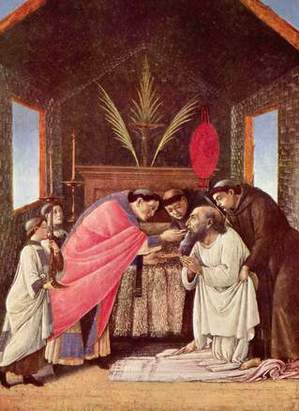Pope Saint Leo the
Great stated: “The faith of those who live their faith is a serene faith. What
you long for will be given you; what you love will be yours for ever. Since it
is by giving alms that everything is pure for you, you will also receive that
blessing which is promised next by the Lord: the Godhead that no man has been
able to see. In the inexpressible joy of this eternal vision, human nature will
possess what eye has not seen or ear heard, what man’s heart has never
conceived.”
Category: Saints
Saint Charles Borromeo
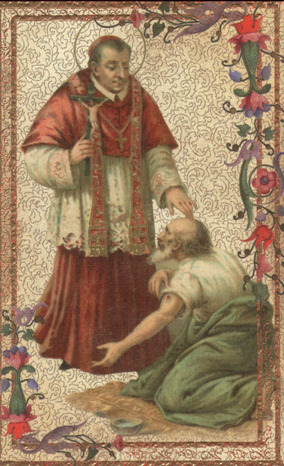 Preserve in the midst of your people, we ask, O
Preserve in the midst of your people, we ask, O
Lord, the spirit with which you filled the Bishop Saint Charles Borromeo, that
your Church may be constantly renewed and, by conforming herself to the
likeness of Christ, may show his face to the world.
The humanity of today’s saint is brought out in an
address celebrating 400 years since he was raised to the altars. Here are three
paragraphs of the Pope 2010 talk (the rest may be read at the link below):
love of St Charles Borromeo was first and foremost the love of the Good
Shepherd who is ready to give his whole life for the flock entrusted to his
care, putting the demands and duties of his ministry before any form of
personal interest, amenity or advantage. Thus the Archbishop of Milan, faithful
to the Tridentine directives, visited several times his immense Diocese even
the most remote localities, and took care of his people, nourishing them ceaselessly
with the Sacraments and with the word of God through his rich and effective
preaching; he was never afraid to face adversities and dangers to defend the
faith of the simple and the rights of the poor.
understand the charity of St Charles Borromeo without knowing his relationship
of passionate love with the Lord Jesus. He contemplated this love in the holy
mysteries of the Eucharist and of the Cross, venerated in very close union with
the mystery of the Church. The Eucharist and the Crucified One immersed St
Charles in Christ’s love and this transfigured and kindled fervor in his entire
life, filled his nights spent in prayer, motivated his every action, inspired
the solemn Liturgies he celebrated with the people and touched his heart so
deeply that he was often moved to tears.
Mystery of the Altar and at the Crucified one stirred within him feelings of
compassion for the miseries of humankind and kindled in his heart the apostolic
yearning to proclaim the Gospel to all. On the other hand we know well that
there is no mission in the Church which does not stem from “abiding” in the
love of the Lord Jesus, made present within us in the Eucharistic Sacrifice.
Let us learn from this great Mystery! Let us make the Eucharist the true centre
of our communities and allow ourselves to be educated and moulded by this abyss
of love! Every apostolic and charitable deed will draw strength and fruitfulness
from this source!
Saints Simon and Jude
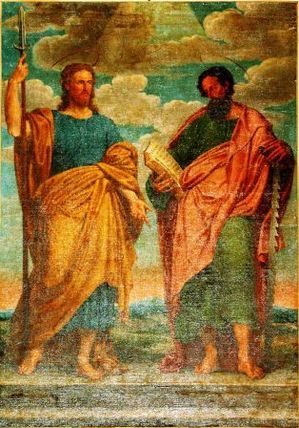 O God, who by the blessed Apostles have brought us to
O God, who by the blessed Apostles have brought us to
acknowledge your Name, grant graciously, through the intercession of Saints
Simon and Jude, that the Church may constantly grow by increase of the people
who believe in you.
Saint Luke the Evangelist
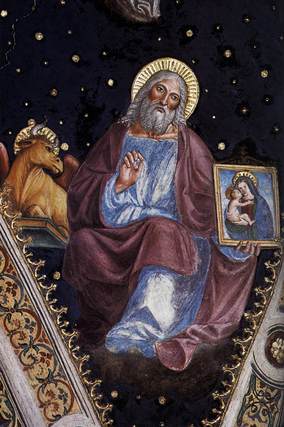 [Saint Luke] told of the power of the Lord, and his praise. (MP resp.)
[Saint Luke] told of the power of the Lord, and his praise. (MP resp.)
Saint Margaret Mary Alacoque
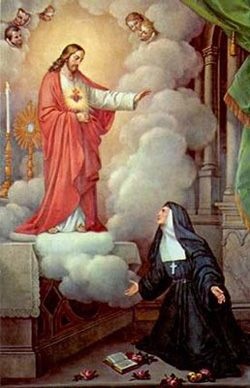
I give myself and consecrate to the Sacred Heart of our Lord Jesus Christ, my person and my life, my actions, pains, and sufferings, so that I may be unwilling to make use of any part of my being other than to honor, love and glorify the Sacred Heart. This is my unchanging purpose, namely, to be all His, and to do all things for the love of Him, at the same time renouncing with all my heart whatever is displeasing to Him. I therefore take You, O Sacred heart, to be the only object of my love, the guardian of my life, my assurance of salvation, the remedy of my weakness and inconstancy, the atonement for all the faults of my life and my sure refuge at the hour of death.
Be then, O Heart of goodness, my justification before God the Father, and turn away from me the strokes of his righteous anger. O Heart of love, I put all my confidence in You, for I fear everything from my own wickedness and frailty, but I hope for all things from Your goodness and bounty.
Remove from me all that can displease You or resist Your holy will; let your pure love imprint Your image so deeply upon my heart, that I shall never be able to forget You or to be separated from You.
Blessed Francis Xavier Seelos
Saint Francis of Assisi
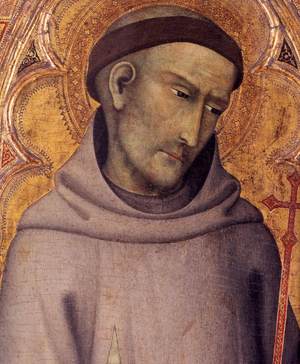 Francis, the man of God, left his home behind, abandoned his inheritance and became poor and penniless, but the Lord raised him up.
Francis, the man of God, left his home behind, abandoned his inheritance and became poor and penniless, but the Lord raised him up.
Guardian Angels
Saint Jerome
Saint Michael the Archangel and the archangels
 No better day than today to recall the work of the archangels: Saints Michael, Gabriel and Raphael.
No better day than today to recall the work of the archangels: Saints Michael, Gabriel and Raphael.
